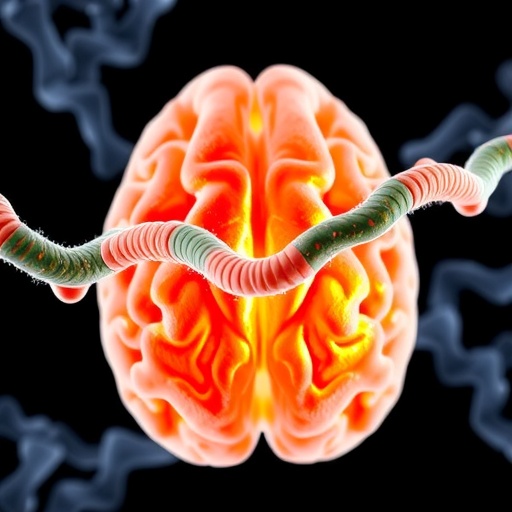Immunoglobulin G (IgG) has garnered attention in recent years for its intricate role in the immune system. Recent findings, particularly from a nested case-control study published in the Journal of Translational Medicine, demonstrate a correlation between IgG N-glycosylation and the long-term risk of ischemic stroke. This discovery could revolutionize how we understand immune responses and their implications on cerebrovascular accidents. The study, led by researchers including Sun, Hao, and Yu, opens new avenues for predictive markers in ischemic stroke, a leading cause of morbidity and mortality worldwide.
The study investigated the structural changes in IgG glycosylation patterns and how these alterations might signal the risk of ischemic stroke over an extended period. By analyzing blood samples from a large cohort, the researchers focused on the specific glycan structures attached to the IgG molecule. Glycosylation, the process by which sugars are attached to proteins, can significantly influence the functionality of antibodies. Abnormal glycosylation patterns in IgG can alter immune response capabilities, potentially leading to various pathological conditions, including strokes.
The researchers utilized a nested case-control design, which is particularly effective in exploring associations in a specific subsection of a larger population. This methodological approach ensured that the results were robust, helping to isolate the effects of IgG N-glycosylation on stroke risk. By comparing individuals who experienced ischemic strokes to those who did not, researchers were able to dissect the relationship between IgG structures and stroke incidence. This granular analysis adds significant weight to their conclusions, showing how autoimmune responses might predispose individuals to vascular events.
Among the findings, a notable aspect was the identification of distinct glycan profiles indicative of increased risk for ischemic stroke. Specifically, certain biantennary complex type glycans appeared more frequently in individuals who suffered strokes, suggesting a mechanistic link between immune system modulation and vascular health. Such associations further elucidate the nexus between systemic inflammation and ischemic events, pressing the need to monitor IgG glycosylation as part of cardiovascular health assessments.
These insights are positioned against the backdrop of the vascular inflammation theory, which posits that chronic low-grade inflammation may predispose individuals to cardiovascular events. The relationship between activated immune responses and vessel health is complex, with numerous factors at play. However, the study’s findings bolster the hypothesis that specific glycan modifications may act as biomarkers for future ischemic events, prompting further investigations into inflammatory processes that precede such occurrences.
Moreover, the implications of these findings extend beyond just predictive measures for stroke risk. Understanding glycosylation dynamics in IgG could pave the way for novel therapeutic strategies aimed at modulating immune responses in at-risk populations. By potentially designing interventions that target glycosylation pathways, there may be opportunities to mitigate the risk of ischemic strokes through tailored immunomodulatory therapies.
On a clinical level, integrating IgG glycosylation assessments into routine check-ups could enhance stroke risk stratification, providing healthcare professionals with vital tools to identify and manage at-risk individuals effectively. Early detection through biomarker assessments can be lifesaving, allowing for preventive measures to be instituted before an ischemic event occurs.
As the research progresses, the focus will likely widen to explore how lifestyle factors, genetics, and environmental exposures may further influence IgG glycosylation. This holistic view could yield critical insights into the complex interplay between immune responses and cardiovascular health, fostering a more integrated approach to stroke prevention.
Future studies will also need to delineate the exact mechanisms through which IgG glycosylation alterations contribute to endothelial dysfunction and subsequent stroke pathogenesis. The findings prompt a series of questions: Are these glycosylation changes a result of or a contributor to vascular disease? How might other forms of glycosylation beyond IgG impact systemic inflammation and vascular integrity? The quest for answers will require collaborative efforts across immunology, cardiology, and molecular biology.
The ultimate goal remains clear: to translate these findings into actionable clinical practices that can dramatically reduce the incidence of ischemic strokes. As research unravels the complexities of IgG and its glycosylation, the potential for innovation in this space remains vast. Engaging healthcare providers, researchers, and patients in this dialogue is essential as we move toward a future where strokes can be predicted and potentially prevented through early intervention strategies based on immune profiling.
In essence, the identification of IgG N-glycosylation as a potential predictive biomarker for ischemic stroke encapsulates the promise of advanced immunological research. This study not only underscores the intricate relationships between the immune system and vascular health but also marks a significant step toward realizing personalized medicine — a paradigm where individual risk profiles can inform tailored treatment plans and prevention strategies.
In conclusion, as we grapple with the implications of this groundbreaking research, it is imperative to sustain momentum in exploring the multifaceted nature of immune responses in stroke pathology. The connection between IgG glycosylation and ischemic stroke risk adds a critical layer to our understanding, urging the medical community to embrace these findings within a broader context of cardiovascular health initiatives.
In a landscape rife with challenges surrounding stroke management and prevention, studies like the one authored by Sun et al. provide hope and direction. They illuminate new pathways for research and clinical practice, nudging us closer to tangible solutions in combating one of the leading causes of death globally. The voyage of discovery continues, poised to refine our grasp of health and disease in profound ways.
As we prepare to embrace future studies and innovation, the narrative on IgG and its glycosylation unfolds, paving the way for possibilities yet to be imagined in medical science.
Subject of Research: Immunoglobulin G N-glycosylation and its association with ischemic stroke risk.
Article Title: Immunoglobulin G N-glycosylation predicts long-term risk of ischemic stroke: a nested case-control study.
Article References:
Sun, S., Hao, J., Yu, C. et al. Immunoglobulin G N-glycosylation predicts long-term risk of ischemic stroke: a nested case-control study.
J Transl Med 23, 1175 (2025). https://doi.org/10.1186/s12967-025-07236-1
Image Credits: AI Generated
DOI: 10.1186/s12967-025-07236-1
Keywords: IgG, N-glycosylation, ischemic stroke, biomarkers, immune response, inflammation, cardiovascular health.




